MEGA QUESTIONS: CROSSROADS OF CREATING VALUE FOR CUSTOMERS
There has been a consistent stream of negative national news stories this season about crowds and operational challenges at Vail Resorts’ areas and, occasionally, its competitors. The headlines and costumer angst may ultimately be a win for independent ski areas, though.
Already, some ski areas are seizing the opportunity to differentiate themselves from skiing’s conglomerates. Tamarack, Idaho, for example, rolled out an “epic deal,” offering two free one-day lift tickets to all Epic and Ikon passholders—Ikon participating resorts have endured some operational and crowding challenges this season, too—from Feb. 21 through the end of the 2021-22 season, with no blackout dates. Other ski areas are launching similarly “epic” campaigns, some more subtle than Tamarack’s explicit invitation to defect.
With the season pass sales cycle kicking off (no 2022-23 prices were public at press time), the big question seems to be: will most skiers and riders reup their passes or will they seek other options? As one industry veteran shared, “You have to assume there will be a higher-than-average attrition, which could lead people to other passes—but even if there is a lot of churn, there will probably be other purchasers to replace them.”
Another industry insider said, “I don’t see how the consumer is going to see value in the mega passes if the experience stinks. It may be gradual or it may be abrupt. It will be interesting.”
Creating value for customers means more than offering a low price for a product—in this case, a season pass—especially when that product is the key to accessing an experience. The experience should be a benefit that outweighs the cost of a season pass, but when the experience diminishes to where it’s perceived as a cost, customers may seek alternatives.
“I’d jump at the chance to be a fly on the wall as these conglomerates discuss pass strategy this year,” says Granite Peak, Wis., general manager and marketing director Greg Fisher. “Can’t go down in price. Can’t really sell more. What do you do?”
So, will unhappy mega-pass holders, regardless of the mega-pass they hold, look to greener pastures? Will independent ski areas and smaller resort groups look to capitalize on the opportunity to market themselves as the mega alternative?
For consumers, it will likely come down to the three Cs: convenience, cost, and culture. The questions they’ll ponder include: Which pass offers convenient access to the region where I ski? How much am I able to spend? And how do I weigh cost against culture?
Culture is a byproduct of the experience provided by any given resort, and should be a benefit in the equation of creating value for the customer. A diminished guest experience will damage culture, and can eventually outweigh cost and convenience in the customer decision-making process. This applies to all ski areas, of course—big or small, conglomerate or independent.
Right now, Joe Public wants his cake, and wants to be the only guy with a fork. Guests want cheaper access to ski areas, and they want the slopes all to themselves. Can Joe Public have both? Sure. Go hit the local T-bar midweek. But if he wants Breckenridge over Presidents’ weekend, he’s always going to have lines, regardless of how much an Epic Pass costs.
THE SKI BIZ ABANDONS OR
What if they staged a trade show and nobody came?
The major hard-goods suppliers in the winter sports business decamped this January from Denver, site of the former Snowsports Industries America (SIA) Snow Show and the current Outdoor Retailer (OR) Snow Show, to Salt Lake City, former site of the OR show and home of the Winter Sports Market (WSM), formerly a show for specialty buying groups only, but now expanded to include other invited retailers.
Wait, what? Hundreds of ski and snowboard brands, including most major hard goods brands, attended the WSM show, and skipped OR entirely? Yup.
The WSM in Salt Lake City had been gaining traction as the place ski industry suppliers met with specialty buying groups, specifically Sports Specialists Ltd. (SSL) and Snowsports Merchandising Corporation (SMC). That expanded this past January, with numerous other invitees joining the mix. Word is that a lot of business got done at the show this year, and that WSM has established itself as the de facto winter show for major brands.
Why the switch? Supply chains, cost, and efficiency.
Suppliers pushed for earlier orders during this year’s buying cycle to offset the supply chain issues that delayed production and shipments this past year, and which they expect to impact production and shipping schedules for the rest of 2022.
“We have a situation where order deadlines are earlier than ever due to supply chain issues,” one observer said. “It’s very real. Suppliers have to make commitments very early. And this situation is not going away anytime soon.”
The earlier order deadlines also shortened the buying cycle, making it less costly and more efficient for suppliers and buyers alike.
The cost of attending trade shows has been an issue for both suppliers and buyers for years. Many found expenses rose when SIA moved the Snow Show from Las Vegas to Denver. After SIA sold the Snow Show to Emerald X in 2017, the OR owner/manager gradually raised booth space costs for members of SIA, bringing booth fees in line with those of other OR exhibitors—and more than double what SIA’s space costs were. That became harder and harder for exhibitors to swallow, and made the WSM look better and better.
Of course, for some retail and rental buyers, including many resorts and smaller retailers, the regional rep shows had already become the preferred place to do business, as these can be even more efficient and less costly.
So: As with many other aspects of the pandemic, a more compressed and efficient buying cycle is likely to become a permanent change. Suppliers have long sought to speed the cycle; the pandemic has made this imperative, and it has proved successful.
“I got everything done [at WSM] that I formerly did at SIA/OR,” one attendee told SAM. “Everyone I spoke to was impressed with how much they got done.”
Another participant pointed out that the shift from the OR Snow Show to the WSM is only one aspect of the buying cycle changes resorts and retailers can expect over the next few years. Earlier orders will require a shift to earlier dates for the regional shows and on-snow demos to align these events with the suppliers’ order deadlines. For that reason, the big ISPO trade show in Munich has already moved from January to late November.
As one insider said, “Things change and you have to adapt.”
OLYMPIC CONTENDERS AND CONTENTIONS
Every four years, the Winter Olympics bring heightened visibility to our industry. Segments showcasing hometown heroes and international underdogs capture the public interest, driving armchair experts to their keyboards and eager fans to the skating rink and—of course—the ski hill. So, what were the stories spinning out of these Games that are likely to leave a lasting impression?
With Mikaela Shiffrin taking an uncharacteristic stumble on the international stage—no medals and three DNFs in five individual races—most domestic coverage of alpine ski racing focused on extreme pressure, mental health, and social media vitriol.
On the flip side, Ryan Cochran-Siegel’s silver medal in men’s super G, nearly 50 years to the day after his mom, Barbara Ann Cochran, won slalom gold at the 1972 Olympics, is proof positive that great skiers often come from the smallest hills. Cochran-Siegel grew up racing at his family’s Cochran’s Ski Area in Vermont—all 350 vertical feet of it.
In snowboarding, Shaun White failed to medal at the Games—his last before retirement—but photos of White walking down the halfpipe after decking out on his final lap hit the right note in his swan song, reminding viewers of his enormous contribution to snowboarding. The coverage is likely to inspire yet another generation of riders. Chloe Kim’s second straight Olympic gold in women’s halfpipe will also be a boon to boarding.
The biggest breakout star of the Games was freestyle skier Eileen Gu. Chinese-American Gu took home three freestyle medals (two gold), the first freeski athlete to do so in a single Games.
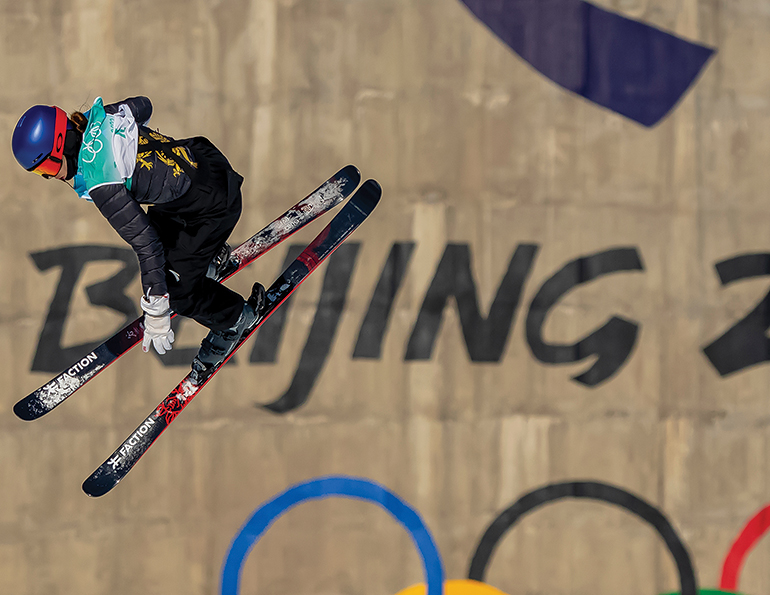 Eileen Gu was the breakout star of the Beijing Olympics.
Eileen Gu was the breakout star of the Beijing Olympics.
While she was competing for China, not the U.S., the Stanford-bound teen has become a major presence in American media—but the coverage isn’t all positive. Not everyone favors Gu’s aggressively neutral stance on China’s politics. Others love her embrace of her dual nationalities and admire her talent.
Nonetheless, the success of Gu and Kim, among others, is likely to inspire more girls to get into the park.
Amid coverage of the heroes emerged an unexpected villain in the press—snowmaking. Yes, while the Olympic venues’ reliance on snowmaking initially generated a slew of articles explaining snowmaking science to a curious public, images of barren brown hills striped with man-made snow quickly became a beacon for climate change concerns. Snowmaking as the poster child for irresponsible environmental practices is not ideal for the industry—nor is it entirely fair.
SUPPLIER NEWS
MOUNTAINGUARD insurance program has hired Mike Brandi as a claims and loss control specialist. He will be working with accounts in New York, New England, and the Midwest.
TECNICA GROUP NORTH AMERICA hired Matthew Miller to the new position of social and environmental impact guide. Miller will oversee Tecnica Group’s North American social and environmental impact strategies, with a focus on shaping industry partnerships.
The MOUNTAIN PLANET trade fair will bring together 900 brands and 23,000 professionals from 68 countries at the Alpexpo in Grenoble, France. The biennial event, originally slated for April 2020, will take place April 26-28, 2022. It will focus on accessibility and disability, construction and renovation, and renewable energy in the mountains.
PEOPLE
In the East, Josh Faber joined Winterplace Ski Resort, W.Va., as general manager. … Killington Resort, Vt., promoted Kayla Sarajian to become the resort’s first female lift operations manager, and hired Kristel Killary as its new PR/communications and social media manager.
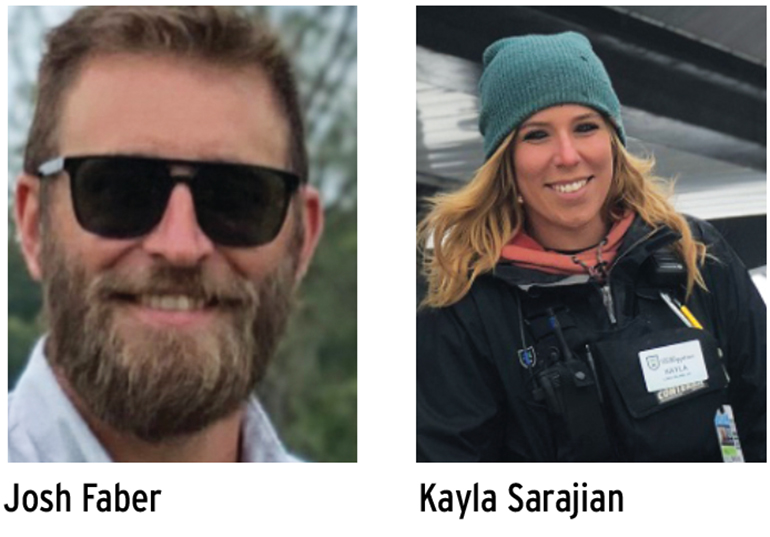
Mount Snow, Vt., general manager Tracy Bartels will become vice president of maintenance, planning and project management for Vail Resorts this spring. … Roundtop, Pa., general manager Brett Cook was named GM of Vail Resorts’ newly acquired Pennsylvania ski areas, Seven Springs, Hidden Valley, and Laurel Mountain. … Brandon Swartz, former GM of Vail-owned Hidden Valley, Mo., was appointed general manager of Vail’s Attitash, N.H.
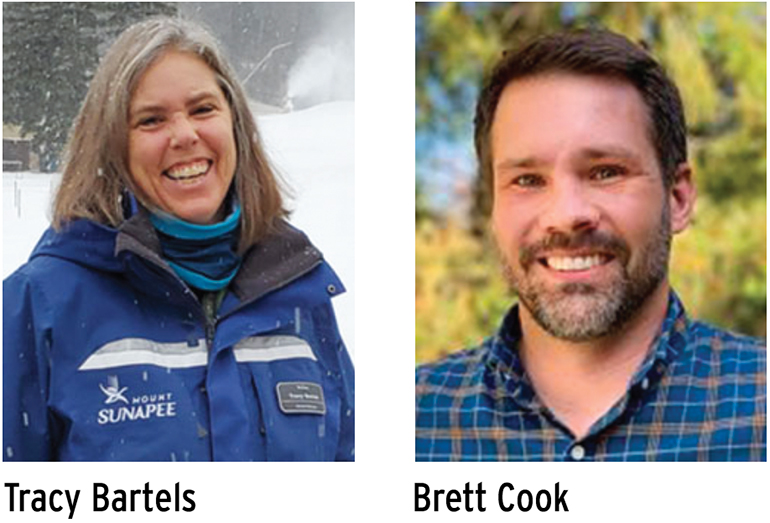
In the Midwest, Lutsen Mountains, Minn., director of operations and marketing Jim Vick was promoted to general manager, following president and now sole owner Charles Skinner’s acquisition of Tom Rider’s 50 percent stake in the resort. Assistant director of operations and marketing Amanda Plummer was promoted to assistant general manager.
In the West, Sarah Mikkelson will lead the new employee childcare facility in development at Steamboat Resort, Colo. … Greg Gavrilets will take over as general manager of Mt. Rose Ski Tahoe, Nev., on April 18. … Tom Fortune, general manager of Vail-owned Heavenly, Calif., was named interim GM of Vail-owned Stevens Pass, Wash.
Brundage Mountain, Idaho, brought in Jerrod Warner as director of projects, promoted April Whitney to a new role focused on public relations and brand strategy, named Molly Hawken director of marketing and sales, and appointed Kyle Looper director of real estate sales and marketing. … David Curell was named general manager of the Josie Hotel, a boutique ski-in, ski-out hotel at the base of Red Mountain Resort, B.C.
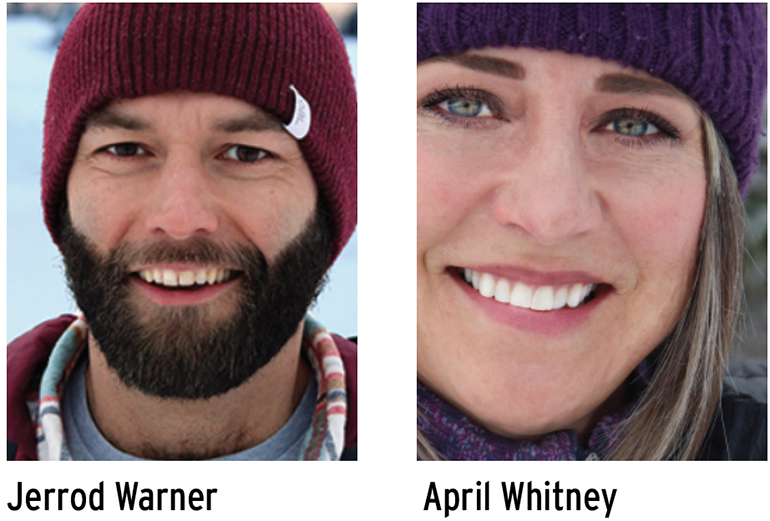
U.S. Ski & Snowboard appointed Guy Slattery as chief marketing officer.
AWARDS
Boler Mountain, Ont., was voted the winner of the 2022 HKD “I Am a Snowmaker” contest. A record 16,000 votes were cast. In a close race, Boler nabbed victory by a 50-vote margin over runner-up Crystal Mountain, Mich.

 NSAA and the United States Forest Service recognized David Corbin, the former vice president of planning at Aspen Skiing Co., with the Distinguished Partner Award.
NSAA and the United States Forest Service recognized David Corbin, the former vice president of planning at Aspen Skiing Co., with the Distinguished Partner Award.
OBITUARIES
Industry veteran Keith Rex Van Duzen, the first mountain manager of Crystal Mountain, Mich., died Jan. 13. He was 92. Van Duzen was one of the original founders of Buck Hills, Mich., the community ski hill on which Crystal was built. He was involved with Crystal from its inception, installing the ski area’s first chairlift in 1960.
Beloved Jiminy Peak, Mass., snowmaker Kimberlee Francoeur, 30, died in an on-hill accident during the day on Jan. 6. Francoeur joined Jiminy 10 years ago and was one of the first women to work in snowmaking at the resort. She was a cherished member of the community and resort team.
Mark West, owner of MRW Project Services LTD, died Dec. 31, 2021. West, a structural engineer, was involved in snowmaking construction and installation projects at ski areas across North America, often working closely with industry suppliers, including Torrent Engineering and SMI. Based in B.C., West was a well-known figure in the Canadian ski industry.
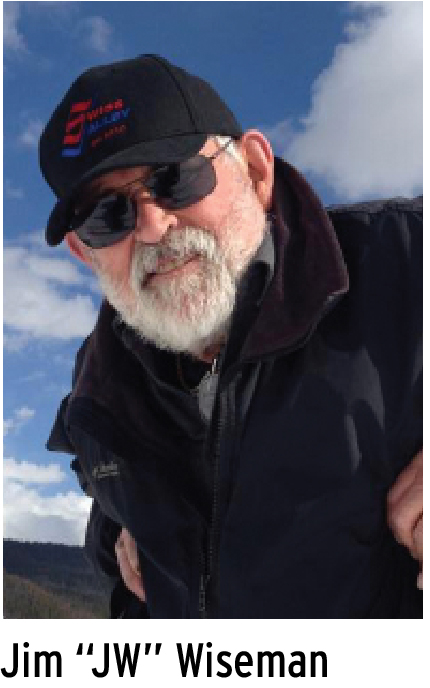 Jim “JW” Wiseman, owner and founder of Swiss Valley Ski & Snowboard Area, died Dec. 30, 2021. In 1968, Jim and former wife Sandra Wiseman purchased the small ski area in rural southwest Michigan. He devoted the rest of his life and many years of hard work to building and growing a thriving snowsports business.
Jim “JW” Wiseman, owner and founder of Swiss Valley Ski & Snowboard Area, died Dec. 30, 2021. In 1968, Jim and former wife Sandra Wiseman purchased the small ski area in rural southwest Michigan. He devoted the rest of his life and many years of hard work to building and growing a thriving snowsports business.






